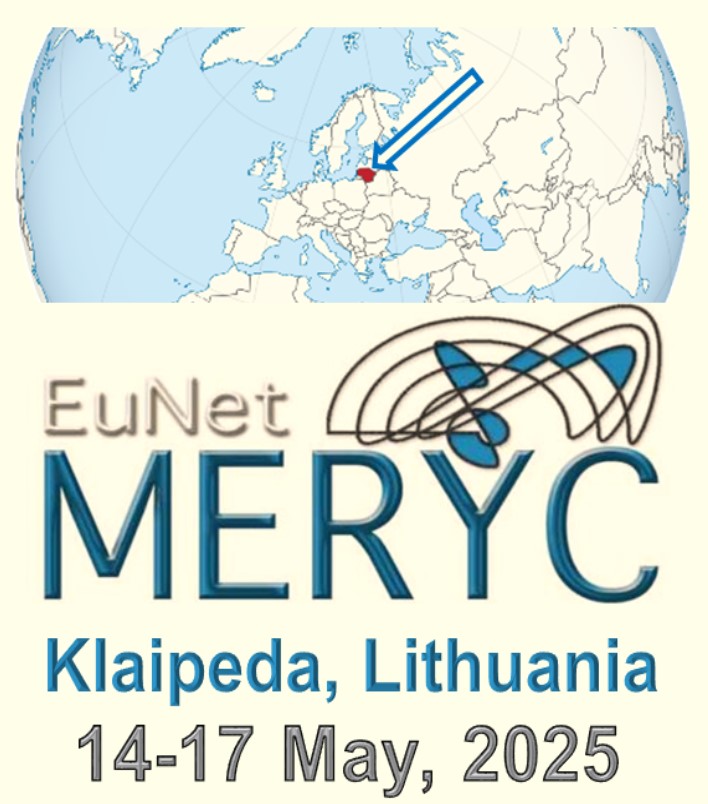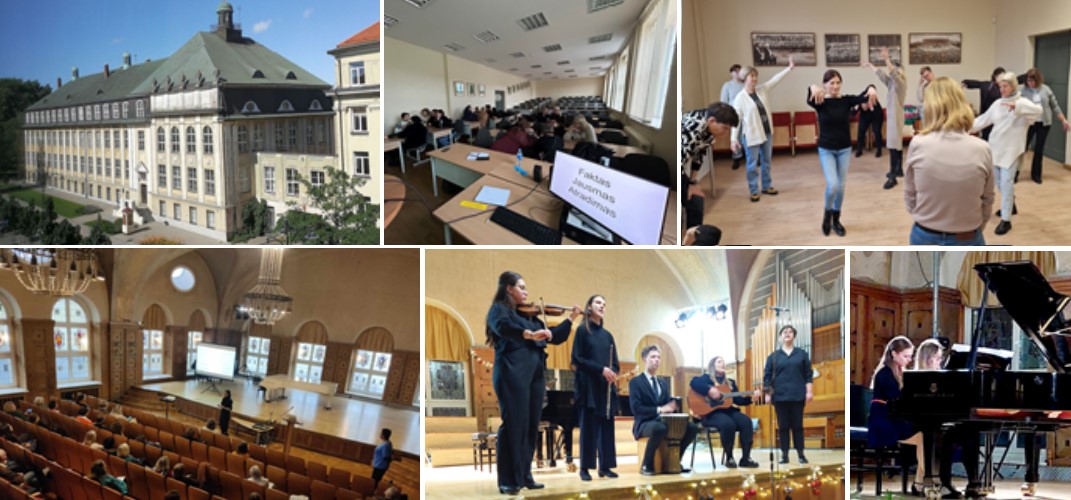The 12th MERYC Conference will be hosted by the Klaipėda faculty of the Lithuanian Academy of Music and Theatre from the 14th to the 17th of May 2025. The conference title: Musical play for and by children. You are invited to submit proposals around this conference theme focusing on the following subtopics:
- Theories of play as the basis for children’s creativity and musicality
- Origins and nature of musical play
- Embodied arts for social and mental wellbeing
- Musical play throughout the day: variety of contexts and situations
- Musical play and technology: opportunities or challenges?
The focus of MERYC 2025 is interdisciplinary discussion and dissemination of new, unpublished research relating to the field of music in early childhood (0-8 years), in both school and extracurricular contexts, as well as everyday life. Both theoretical or conceptual research as well as reports on innovative approaches to practice are welcomed. The overarching aim of MERYC is to improve European research and practice relating to music and young children.
Authors of spoken papers and posters should also indicate one or more topic areas under which the paper might be grouped, as well as three keywords on the submission form. The chosen topic areas can be selected from the list below or a new topic area may be proposed.
THE SUBMISSION HAS ENDED
Our conference platform
https://www.conftool.net/meryc2025
Submissions are invited for:
- Spoken papers: empirical, theoretical or practice (20 + 10 minutes discussion)
- Posters
- Symposia (90 minutes)
- Workshops and Demonstrations
1. Spoken papers (empirical, theoretical or practice)
Spoken papers will be allocated 30 minutes, consisting of 20 minutes for presentation, 5-10 minutes for questions & discussion. Spoken research papers present research projects, explaining aims, methods (experimental, empirical investigation, ethnological observation, etc.), data analysis, findings, and conclusions. Spoken practice papers explain and demonstrate innovative didactical approaches/pedagogical theories, accompanied by a discussion on the implications for future practice.
2. Posters
Poster presentations will appear in the Conference Programme, in the Abstract Book, in the Proceedings, and will be assigned designated times in the conference schedule. Depending on the subject and/or content, it may be more appropriate to submit an abstract as a poster for visual presentation rather than a 20-minute spoken presentation. In general, the sorts of papers, which are most effective as posters are those in which the major conclusions become evident from the thoughtful examination of charts, graphs and photos rather than those, which require the audience to follow sustained verbal argumentation. Therefore, authors should make points in narrative form as brief as possible. The poster paper can “stand alone”, that is, to be understandable even if the author is not present; It does not typically require audio-visual support. Specific information about poster dimensions and other requirements will be communicated to authors of accepted posters.
3. Symposia
Symposia consist of a set of spoken papers related to a theme. The total time allowed for a symposium will be 90 to 120 minutes, consisting of three to four 25-minute papers and a discussion. Symposium conveners are asked to coordinate the submission of papers – including an abstract for the entire symposium – stating the rationale for the topic, the aims of the symposium, and the set of proposed speakers (see detailed submission information below). A discussant may also be proposed.
4. Workshops and Demonstrations
Information on workshops and demonstrations will appear in the Conference Programme, in the Abstract Book, and in the Proceedings. The host university may provide equipment in the form of instruments or other materials if precise information is provided in the proposal. The workshop leaders should be experts in young children’s music education and in preparing music teachers and educators. They will present practical shared experiences according to specific aims and pedagogical approaches. A demonstration of an innovative pedagogical approach is likely to take the form of a workshop in which participants join in actively. For demonstrations of software or equipment, authors will be responsible for ensuring that the necessary equipment is available. The submission for workshops and demonstrations should include a short description of the aims (which should not have a commercial motive) and a full description of the equipment and facilities required. The maximum time for a workshop will be 60 minutes, and 30 minutes for a demonstration session.



